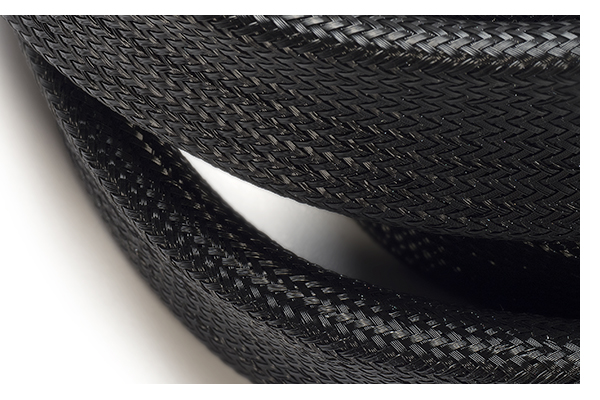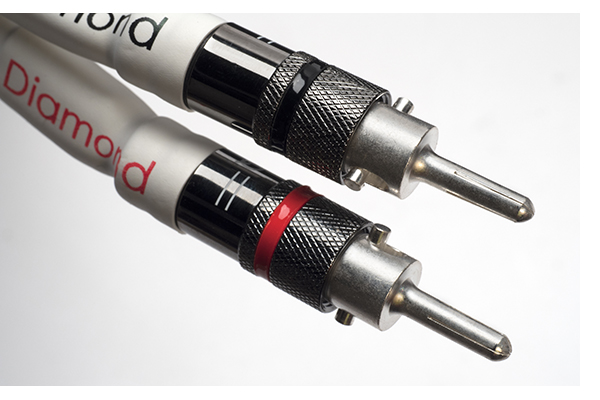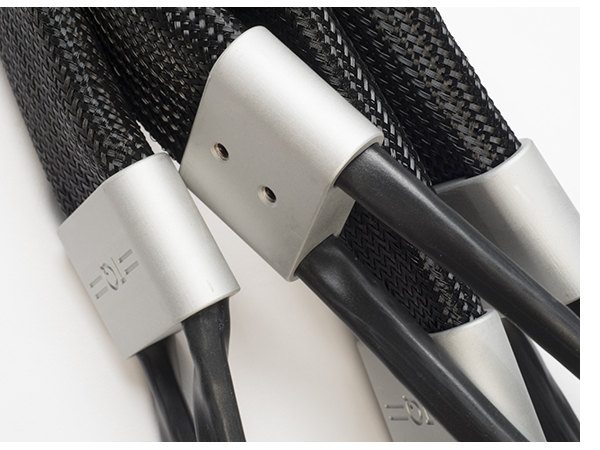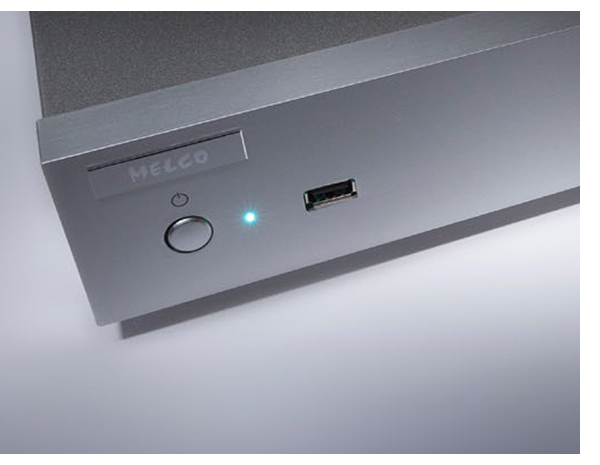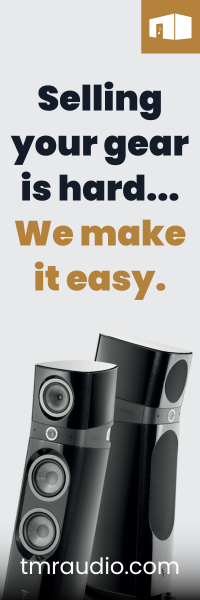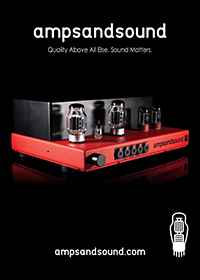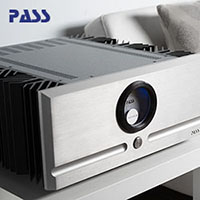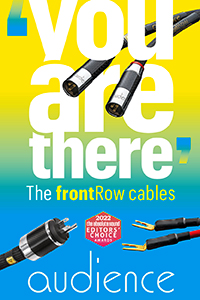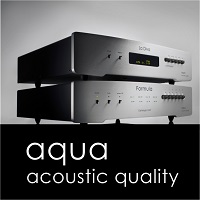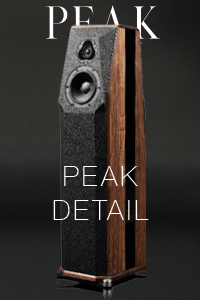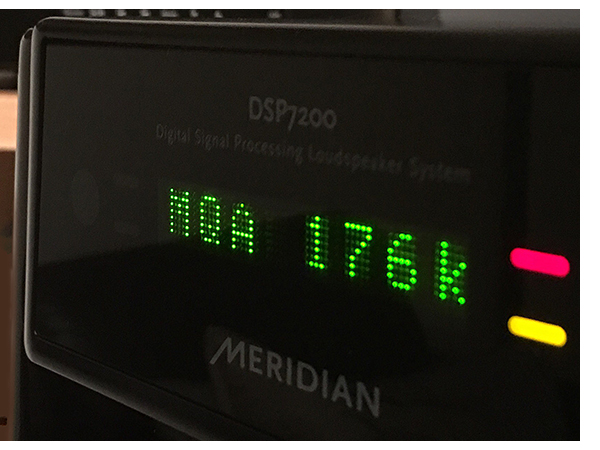 I gave Meridian’s co-founder Bob Stuart a difficult time a little over two years ago as he first told me about MQA, making it clear that I wasn’t going to tell you, my readers to buy Kind of Blue, again, no matter how compelling the demo he was about to show me would be.
I gave Meridian’s co-founder Bob Stuart a difficult time a little over two years ago as he first told me about MQA, making it clear that I wasn’t going to tell you, my readers to buy Kind of Blue, again, no matter how compelling the demo he was about to show me would be.
The demo was amazing, and you wouldn’t expect anything less from Bob Stuart, undoubtedly one of high end audio’s most clever guys. Though Stuart is a confessed digital guy, it’s incredible that his latest creation is so analog sounding. A number of early reports on MQA have been less than bombastic, but like so many incredible things, the magic is in the details – in this case the fine details.
What Mr. Stuart has developed is certainly a paradox. As someone raised on fine analog, hearing MQA for the first time comes across as brilliant, but not in a hit your head with a mallet way. Yet the more analog you have heard, the more easily you’ll appreciate what MQA brings to the table. Music rendered via MQA has an ease and smoothness that you would normally associate with the best analog record and tape playback, in terms of musicality, with the dynamic range and speed accuracy you’d expect from digital. Sound like the best of both worlds? Well, it is.
Though Stuart started development work at Meridian, MQA is a separate company. As he mentions, “We had to set it up this way. First, it’s now a full-time job. Second it’s a completely different type of activity and in MQA we genuinely firewall our licensee activities from each other and that includes Meridian”.
It’s important to keep in mind that MQA is not really a new format, per se. Stuart and his staff say that MQA captures subtle timing information that is lost in the digital encoding process by creating a digital footprint of the recording chain of the album being played. In essence, they eliminate the sonic fingerprint of the gear going from the microphone to the DAC. Those worried that the sonic choices made by the artist and engineer to get said sound will be lost, have no fear. As much or little of the recording chain as the artist and/or producer want to leave in the mix can remain. This is why these recordings are referred to a “Master Authenticated.” They are all signed off on by the artist, so you know this is the record that the artist and producer intended you to hear in the first place.
A Sooloos server full of MQA files, from the 2L label and Warner Music, makes it easy to compare MQA to non MQA files in a relevant way. Good as the recordings from the 2L label are, these are not albums like Chicago V, Roberta Flack & Donny Hathaway, or Harvest; records that I’ve been listening to for most of my life, and also are available in nearly every format you can think of. Yet with all these classics at my disposal, the shootout begins with Metallica’s black album. Notoriously squashed of life and dynamics, this rock staple comes alive via the MQA process. The beginning of “Wherever I May Roam” is now full of life; rather than being met by a giant wall of overly compressed guitar crunch, the MQA version uncloaks layer after layer of information, providing more listening enjoyment, and illuminating the amount of care made in the recording session. Metallica has never sounded better in my system.
Multiple comparisons to the existing standard and high resolution files I have of the Warner classics on file, via Meridian’s latest 818v3 Reference Audio Core, which acts as a MQA compatible DAC, preamplifier and control system and a pair of 7200SE active speakers prove enlightening. Stuart tells me that this pair of 7200s is very special, because it is the same pair of speakers that he dragged around the world, doing all of the MQA demos for various label heads, artists and producers… Yet, you don’t have to spend $16,000 on a DAC to enjoy MQA. A number of hardware partners are now available (check www.mqa.co.uk for the latest count) and Meridian’s $299 Explorer 2 DAC gives a highly convincing demonstration.
Moving the 818v3 from my home listening room to main listening room at TONEAudio proves equally illuminating, where a direct comparison between MQA and a few other very good DAC’s but to make the ultimate comparison; MQA and vinyl. Again, this is where MQA really shines. For all the vinyl lovers in the audience (myself included), constant comparison between the recent 45 rpm LP remasters of the Neil Young catalog and the tracks available on MQA are nearly a dead heat. Nearly all of my non audiophile friends with no predisposed agenda prefer the sound of the MQA files to even LP, yet the same comments are made by everyone with no audiophile language; MQA sounds more relaxing, more real, more like music. So Mr. Stuart has hit a home run.
Again, is it a night and day difference? Not necessarily. Listening to great 24/192 vs. MQA is like going from a 7 Series BMW or S Class Mercedes to a Bentley. High quality versus very high quality, yet the difference is still there and as Mr. Stuart is fond of saying, “once you hear it, you can’t un-hear it.”
However, I think the even bigger difference or improvement that MQA brings besides another level of refinement is the way it will bring higher resolution to everyone. The main problem with 24/192 files is the size of the data pipe required to facilitate it. An MQA stream is right around 1100kb/sec, actually a bit smaller than uncompressed CD resolution files. This will be tremendous for those of us wanting high res to go, streaming from Tidal and eventually others. Stuart was kind enough to let me stream some beta files on Tidal and the results are excellent.
And this is what I like most about MQA, you won’t have to buy Kind of Blue or any of your legacy audiophile pressings again to enjoy the benefit of MQA. That’s what makes this really cool. Those that do want to purchase these titles will be able to very soon, but linking MQA with Tidal makes it a lot more diplomatic and cost effective.
In addition, files encoded with MQA will still sound better, cleaner on your standard digital setup even if you don’t have a DAC capable of decoding MQA. For now, let’s call the difference about 20% in terms of revealing more music in a less imposing (i.e. digital artifacts, etc) way than a non-MQA file.
The biggest hope for MQA is that as recording studios around the world adopt MQA as a standard and invest in MQA encoding hardware, forgoing the need to send the files to Meridian for encoding as they do now, future generations of musicians work will sound much better; that’s a triumph for everyone. That’s why MQA.
And Kind of Blue sounds pretty awesome too. Touche, Mr. Stuart.
From the mixing console: A chat with 2L’s Morten Lindberg and Bob Stuart
Morten Lindberg of 2L Recordings in Norway, has created some of the world’s finest recordings before MQA was introduced, and he has been a very early adopter of Bob Stuart’s technology, taking things even further. Both of these gentlemen were kind enough to give me an hour of their time, right on the tail end of the Munich High End show to discuss their relationship and process.
TA: Do you feel that thanks to MQA, music going forward is going to sound a lot better?
ML: When you’re talking about a well-done setup to a perfectly done MQA setup, yes it is, but comparing to many people with a standard digital setup it will be huge. So many users have shitty playback. There are some major differences.
BS: It depends on what kind of listener you are. Some listen to MQA and say it’s very subtle, others say it’s extraordinary, listening to different aspects of the sound.
TA: For me, MQA was an a-ha moment, but I was listening to a lot of tracks that I’ve been listening to for years, so it was easy. I recently hosted about 40 people in my home to A-B MQA and all but one not only preferred the difference, but heard the same thing. The one who did not prefer MQA said it was “too smooth.” I keep noticing that smoothness, which reminds me more of analog, because of the long tonal gradation that MQA processed recordings possess.
BS: Exactly, it’s a back to analog, closed loop system now. When you take out the “problems” of digital, you get sounding back to the original. Yet when you hear it on a cell phone with earbuds, MQA still sounds much better and that’s what’s exciting.
TA: Because the bitstream of an MQA file is much smaller than that of a 24/192 file it’s going to be that much easier for everyone to enjoy high resolution audio?
BS: Yes, it’s smaller than a CD stream and much smaller than a high res file.
ML: Two years ago I didn’t know anything about Bob or MQA, and this is what first attracted me to the format. I felt our original high res files sounded just fine, but this might make it easier to distribute our high resolution files in a smaller container without losing anything. That was actually the entrance to MQA, the “origami” part of the MQA file. I had to prepare sometimes 8 or 9 master file sets, tailoring dithering and filtering for each sample rate the customer might use, so now just using one file that would unfold and work with multiple end users really attracted me. Originally Bob and I were to sit and talk for an hour, but after our first meeting went seven hours, it still took a while to understand the total philosophy of how we could implement it into our work.
TA: Are you recording your new projects in MQA format? Does it add or subtract from your digital workflow?
ML: We’ve been meeting regularly in our studio, listening to music, talking about audio and recordings, defining what are we searching for, other than just redistributing our files. There are not yet easily available production tools, so we’ve been figuring out how to work together. While in production, I send raw files to Bob, he does his processing and I get options back. I’m used to turning a knob or pulling a fader and having something happen. This is different. Me listening to the files not knowing what was done and describing what I’ve experienced has been very helpful and taken my level of hearing to a new level.
BS: And we’ve developed a common language for all of this.
ML: Remarkably, it’s not very technical; more about color and emotions. We aren’t talking about frequency spectrums that much!
TA: So for now, you’re not really working with an MQA encoder per se, you’re using your current workflow then sending it off to Bob to process.
ML: Yes, but we are looking forward to a more efficient process very soon. What Bob and I are doing is fine tuning.
TA: So if I understand both of you correctly, MQA essentially removes the “digital fingerprint” of the recording chain.
BS: That’s what we are trying to do, and soon Morten will have a full MQA setup in his studio, but this process has helped both of us tremendously.
ML: We’ve done quite a lot of projects together and our catalog goes back to 2002, and we’ve gone back to eliminate that “digital fingerprint” from all of our files.
BS: One of the best things about even a great encoder is that you can still improve it further.
ML: It’s really difficult to describe this process, as it isn’t always one process requiring one action. When we listened to my Mozart recording in its original shape from 2006, we’ve now made some major and many minor actions to get it where it is today. We tend to refer to digital as one curse word. A lot has happened since the 80s and 90s and what has evolved from converter to converter as our process has evolved.
BS: The magic here is that by taking out the sound of the converters, even this recording done ten years back is a great recording!
JD: Now having MQA, and as the tools keep changing, changes your process as well. Using this going forward, does it then change how you setup in the studio? Mic choices, mic placement.
ML: Even though we don’t employ the MQA process when recording (Stuart chimes in “Not yet”) I would like to have MQA in my listening at the venue, it’s embedded in my brain so I know what slight differences I can change when recording.
JD: The parallel to photography stays in my mind, it seems to be a lot like pre visualizing what the end result will be.
ML: Yes, definitely
BS: We find that Morten’s recordings with two mics, are the cleanest ones we’ve encountered. With other multitrack digital recording you have more blurring because more mic feeds are being processed. With more channels, there’s more blurring, hence the need to turn it up louder. You have to use brighter colors. Once you clean the picture, you don’t have to make the colors as bright to be seen. You can’t expect to make a great recording with 200 microphones.
ML: But they keep trying! This really goes to my heart. Most engineers are more concerned with abuse afterward from the producer or artist. I’m sorry if I seem harsh.
TA: Morten, with this being said, is there any chance of you working outside the current genres of music you now work in?
ML: Of course. It doesn’t matter what kind of music it is, it comes down to my craft and my approach to recording music. Part of the production is finding the right venue, the right room for any given type of music. Instruments balancing in a natural way is a big part of what I do. And this would be more than you might think.
TA: I agree with you gentlemen on all counts. Morten you offer your digital test bench so people can actually hear not only the difference between file formats, and resolution. How long has this been going on and whose idea was this?
ML: It was my idea from the moment we started to distribute our original masters. About 2008 and it’s a simple web server, delivering about a terabyte a week of different samples.
TA: So back to our original topic somewhat; MQA is helping to simplify the process of downloading high resolution digital music files.
BS: Yes.
ML: Our job is to deliver the best sounding original recording we can in the final format that the customer wants to hear.
Conclusion
The digital process continues to advance, and both Bob Stuart and Morten Lindberg are major players on both sides of the console. With guys this passionate working for us, music delivery will continue to evolve and improve. You may hear a number of arguments on the internet or at the pub, but in the end, we at TONEAudio feel MQA is a huge step forward in digital music fidelity and delivery. We urge you to experience it at your convenience.
www.mqa.co.uk




